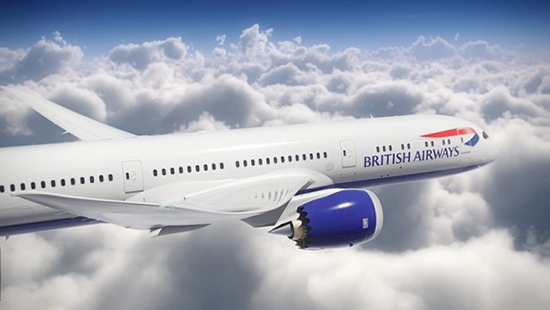British Airways has entered a partnership to design a series of waste plants that convert household waste into renewable jet fuel to power its fleet.
The partnership, with Velocys, a renewable fuels company, is part of the airline’s plans to develop long-term, sustainable fuel options.
The first plant will take hundreds of thousands of tonnes of household waste per-year, destined for landfill or incineration, including nappies, plastic food containers and chocolate bar wrappers, and convert it into clean-burning, sustainable fuels. This will contribute to the airline’s commitment to reduce net emissions by 50 per cent by 2050.
As well as helping the airline industry reduce its carbon emissions this initiative will also significantly reduce the amount of waste going to landfill. The UK still sends more than 15 million tonnes of waste per year to landfill sites which not only damages our natural environment but also releases further greenhouse gases affecting climate change.
The planned plant will produce enough fuel to power all British Airways’ 787 Dreamliner operated flights from London to San Jose, California and New Orleans, Louisiana for a whole year. It would be the first plant of this scale. The airline plans to supply its aircraft fleet with increasing amounts of sustainable jet fuel in the next decade.
The jet fuel produced at the plant will deliver more than 60 percent greenhouse gas reduction, compared with conventional fossil fuel, delivering 60,000 tonnes of CO2 savings every year. This will contribute to both global carbon emissions reductions and local air quality improvements around major airports.
During the past week the Department for Transport has published changes to the Renewable Transport Fuels Obligation (RTFO), and for the first time, sustainable jet fuel will be included in its incentive scheme. These changes to the RTFO are designed to promote sustainable aviation. Once implemented, they are expected to provide long term policy support for this market.
Willie Walsh, IAG chief executive, said: “Sustainable fuels will play an increasingly critical role in global aviation, and we are preparing for that future.
“Turning household waste into jet fuel is an amazing innovation that produces clean fuel while reducing landfill.
“From developing innovative operating techniques, to investing in the most modern and efficient aircraft, we have a strong track record in researching, identifying and implementing ways to reduce emissions.
“This partnership continues this tradition, and shows how we are investing in our long-term future – and that of our customers.”


